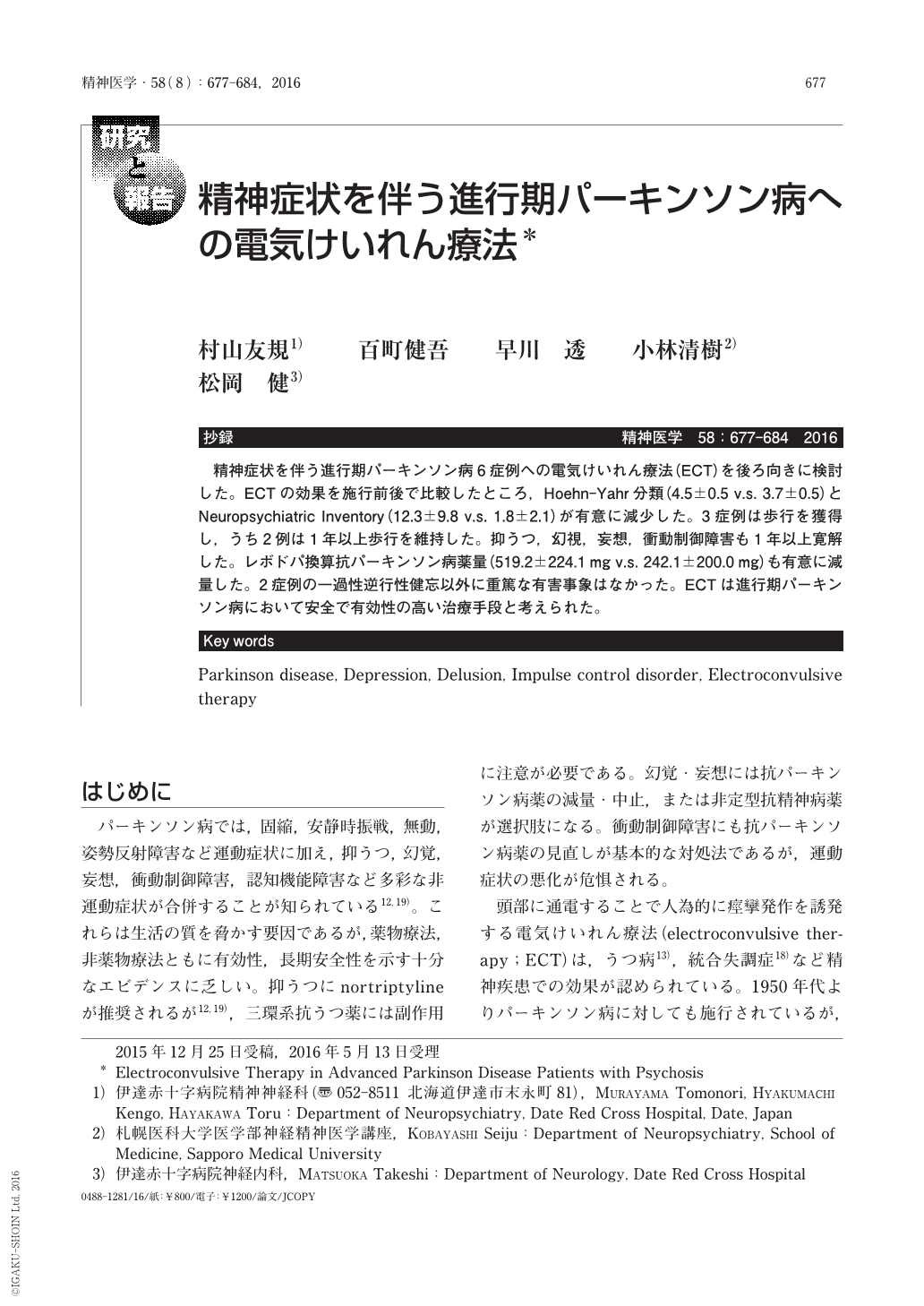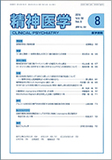Japanese
English
- 有料閲覧
- Abstract 文献概要
- 1ページ目 Look Inside
- 参考文献 Reference
抄録
精神症状を伴う進行期パーキンソン病6症例への電気けいれん療法(ECT)を後ろ向きに検討した。ECTの効果を施行前後で比較したところ,Hoehn-Yahr分類(4.5±0.5 v.s. 3.7±0.5)とNeuropsychiatric Inventory(12.3±9.8 v.s. 1.8±2.1)が有意に減少した。3症例は歩行を獲得し,うち2例は1年以上歩行を維持した。抑うつ,幻視,妄想,衝動制御障害も1年以上寛解した。レボドパ換算抗パーキンソン病薬量(519.2±224.1mg v.s. 242.1±200.0mg)も有意に減量した。2症例の一過性逆行性健忘以外に重篤な有害事象はなかった。ECTは進行期パーキンソン病において安全で有効性の高い治療手段と考えられた。
We retrospectively examined the effectiveness of electroconvulsive therapy (ECT) in six patients with severe Parkinson disease (PD) who showed psychiatric symptoms. Our study demonstrated that psychiatric symptoms were significantly less severe after ECT, as indicated by a change in the Neuropsychiatric Inventory score (Mean±SD, 12.3±9.8 vs. 1.8±2.1). Furthermore, these patients showed significant improvement in Hoehn-Yahr stage after ECT (4.5±0.5 vs. 3.7±0.5). Three patients experienced clinical remission of depression, visual hallucinations, delusions, and impulse control disorders for more than a year. In addition, these three patients also showed improvement in their activities of daily living for more than a year. Three patients with gait impairment were able to walk, and two of these patients could walk for at least year. In these patients, the total daily levodopa equivalent dose was significantly decreased (519.2±224.1mg vs. 242.1±200.0mg). Adverse events were generally mild, with transient retrograde amnesia occurring in two patients. We conclude that ECT is safe and has a beneficial effect in the advanced stages of PD.

Copyright © 2016, Igaku-Shoin Ltd. All rights reserved.


